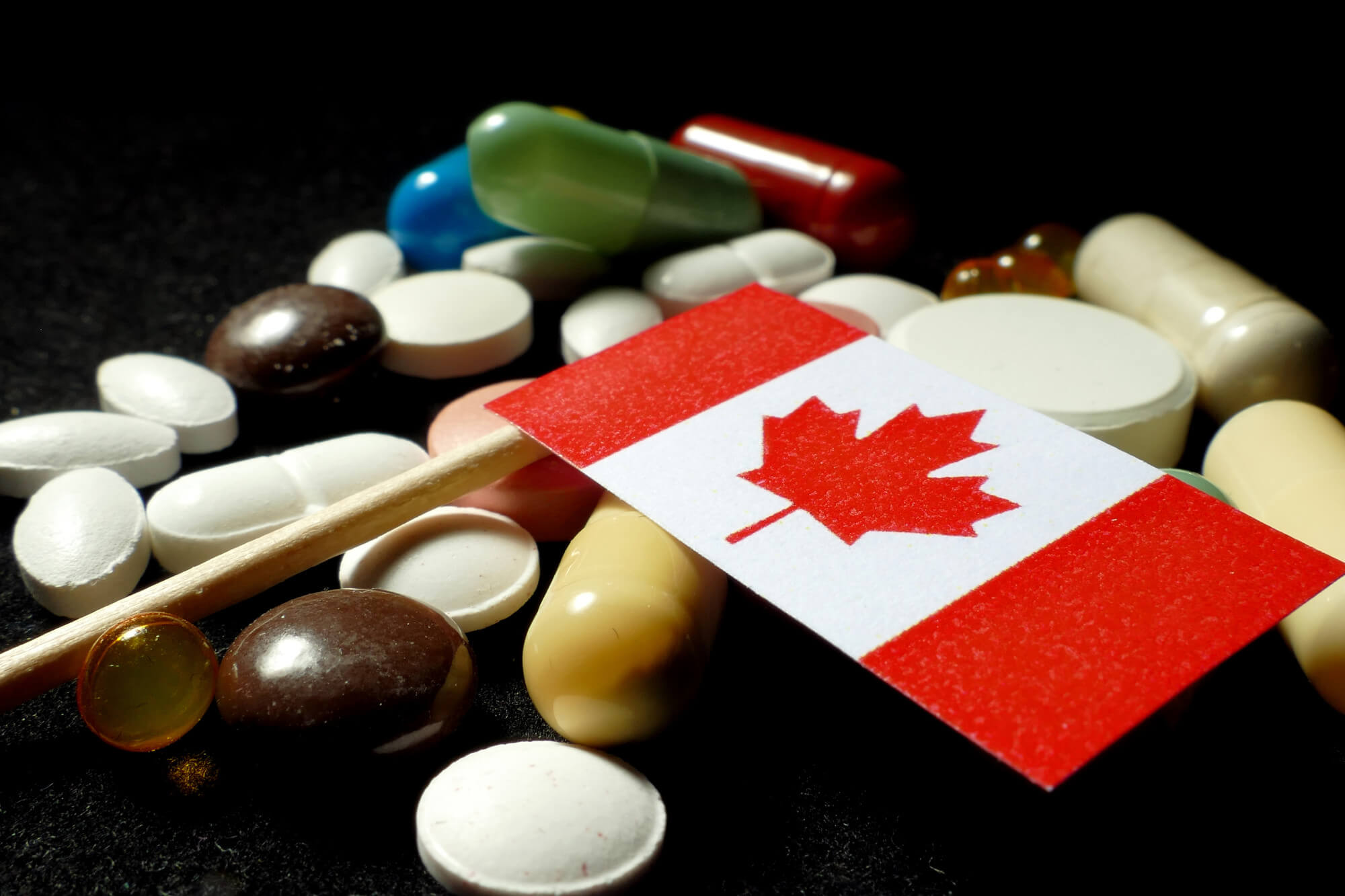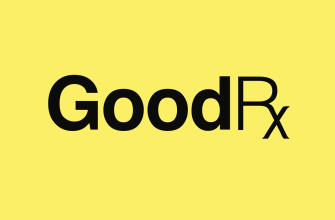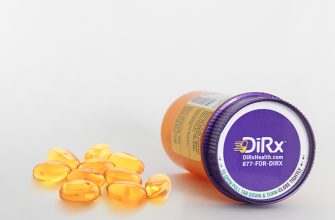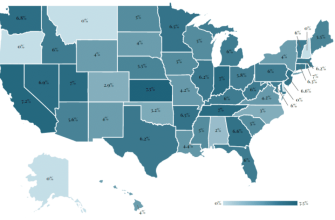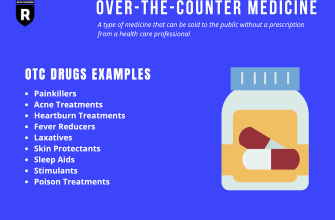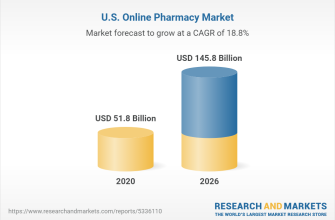Need prescription medication? Consider Canada. Many Canadians find their drug costs significantly lower than in the US. This difference stems from Canada’s publicly funded healthcare system and price controls, resulting in substantial savings for consumers.
Focus your search on reputable Canadian online pharmacies. Verify their licensing and accreditation through the relevant Canadian regulatory bodies. Look for pharmacies with transparent pricing and customer reviews, emphasizing those with positive feedback regarding secure order processing and timely delivery. Don’t hesitate to contact the pharmacy directly with any questions before placing your order.
Remember, safety is paramount. Only purchase medications from licensed pharmacies. Be wary of unbelievably low prices; they may indicate counterfeit or substandard drugs. Always check the expiry date upon receiving your package and ensure the packaging matches the description provided by the pharmacy. This vigilance helps protect your health and well-being.
Before ordering any medication from Canada, confirm its availability and legality in your country of residence. Consult your doctor or pharmacist to discuss the potential risks and benefits of importing prescription drugs and to ensure the medication is appropriate for your individual needs. A clear understanding with your healthcare provider minimizes potential complications.
- Canada Prescription Drugs
- Finding Affordable Prescription Medications in Canada
- Negotiating Drug Costs
- Alternative Approaches
- Canadian Pharmacy Regulations and Safety
- Licensing and Accreditation
- Secure Ordering Practices
- Medication Verification
- Prescription Requirements
- Privacy and Confidentiality
- Dispute Resolution
- Legitimate vs. Illegitimate Canadian Online Pharmacies
- Comparing Drug Prices: Canada vs. the United States
- Factors Influencing Price Differences
- Recommendations for Americans Seeking Lower Drug Costs
- Importation Concerns
- Importing Prescription Drugs into Canada: Rules and Restrictions
- Insurance Coverage for Prescription Drugs in Canada
- Potential Risks and Side Effects of Ordering Drugs Online
- Lack of Legitimate Oversight
- Privacy and Security Concerns
- Delayed or Missing Orders
- Uncertain Product Quality
Canada Prescription Drugs
Consider using a Canadian pharmacy for significantly lower prescription drug prices. Many reputable pharmacies operate legally, offering a wide selection of medications.
Before ordering, verify the pharmacy’s legitimacy with your provincial regulatory body or Health Canada. Look for pharmacies with clear licensing and contact information.
- Check for independent verification seals (like CIPA).
- Read customer reviews on independent review sites. Avoid reviews directly on the pharmacy’s website.
- Confirm the pharmacy is dispensing medications approved by Health Canada.
Understand that shipping times vary. Factor this into your medication needs. Allow extra time for delivery, especially for international orders.
Always consult your doctor before ordering medications from any online source, Canadian or otherwise. Discuss potential risks and interactions with your current medications.
- Obtain a valid prescription from your physician.
- Ensure the pharmacy you choose accepts your prescription format.
- Keep records of all your transactions, including order confirmations and tracking numbers.
Be aware of potential customs regulations. While many medications are allowed, restrictions apply to certain controlled substances. Check with Canadian customs authorities to avoid delays or problems.
Compare prices across multiple reputable Canadian pharmacies. Prices may fluctuate based on medication, quantity, and pharmacy. Saving money is possible, but safety and legitimacy are paramount.
Finding Affordable Prescription Medications in Canada
Explore provincial drug plans. Many provinces offer subsidized prescription drug programs for seniors and low-income individuals. Check your province’s health ministry website for eligibility criteria and application details. These programs significantly reduce out-of-pocket costs.
Consider generic medications. Generic drugs contain the same active ingredient as brand-name drugs but cost considerably less. Your doctor can easily prescribe a generic alternative if one is available.
Negotiating Drug Costs
Ask your pharmacist about potential discounts. Pharmacies often have their own discount programs or partnerships with patient assistance organizations. Inquire about these options before purchasing your medication. Many offer significant savings.
Use comparison tools. Several online resources compare prescription drug prices across different pharmacies. Use these tools to identify the most affordable option in your area. This simple step can save you money.
Alternative Approaches
Explore online pharmacies (carefully). While convenient, ensure the online pharmacy is licensed and reputable to avoid counterfeit drugs. Read online reviews and verify their legitimacy with your pharmacist or doctor.
Join a patient assistance program. Pharmaceutical companies sometimes offer patient assistance programs that provide free or heavily discounted medication to eligible individuals. Check with your doctor or the manufacturer of your medication.
Canadian Pharmacy Regulations and Safety
Verify the pharmacy’s license with Health Canada. Their website provides a database for quick checks. This simple step significantly reduces your risk.
Licensing and Accreditation
Look for accreditation from organizations like the Canadian International Pharmacy Association (CIPA). CIPA members adhere to strict standards. Confirm the pharmacy’s physical address in Canada; avoid those operating solely online without a verifiable physical location.
Secure Ordering Practices
Always use secure websites (look for “https” in the address bar). Secure websites encrypt your personal and financial information. Never share your credit card details via email or unsecured platforms. Read reviews from other customers to gauge their experience.
Medication Verification
Check the packaging carefully upon receiving your order. Ensure the medication matches your prescription. Report any discrepancies to the pharmacy immediately. Canadian pharmacies will provide tracking information so you can monitor your order’s progress.
Prescription Requirements
Canadian pharmacies require valid prescriptions. Uploading a clear image or providing a copy is usually sufficient. Submitting a fraudulent prescription can lead to legal complications. Pharmacists are obligated to verify the legitimacy of your prescription.
Privacy and Confidentiality
Reputable Canadian pharmacies prioritize patient privacy. They adhere to strict data protection regulations. Review their privacy policy to understand how they handle your personal information. Contact the pharmacy directly with any privacy concerns.
Dispute Resolution
Should you encounter problems, attempt to resolve them directly with the pharmacy first. If unsuccessful, you can contact Health Canada for assistance with complaints against licensed pharmacies. Understand your rights as a patient and your options for addressing any issues.
Legitimate vs. Illegitimate Canadian Online Pharmacies
Verify a pharmacy’s legitimacy through the College of Pharmacists of British Columbia’s website or similar provincial regulatory bodies. This confirms licensing and adherence to Canadian regulations.
Legitimate pharmacies clearly display their physical address in Canada, contact information (phone number and email), and licensing details. Suspicious sites often lack this transparency.
Prices significantly lower than average strongly indicate an illegitimate pharmacy. Beware of deals that seem too good to be true. Legitimate Canadian pharmacies should have prices competitive with local pharmacies, but not drastically cheaper.
Secure websites use HTTPS (indicated by a padlock icon in your browser’s address bar). Illegitimate pharmacies may lack this crucial security feature, putting your personal and financial data at risk.
| Feature | Legitimate Pharmacy | Illegitimate Pharmacy |
|---|---|---|
| Licensing | Clearly displayed and verifiable | Absent or unverifiable |
| Physical Address | Canadian address provided | Address missing or fake |
| Pricing | Competitive with local pharmacies | Unusually low prices |
| Website Security | HTTPS secured | Unsecured (HTTP) |
| Contact Information | Multiple contact methods available | Limited or no contact information |
If you have any doubts, contact your doctor or pharmacist for advice. They can help you identify safe and reliable sources for prescription medication.
Comparing Drug Prices: Canada vs. the United States
Canadians generally pay significantly less for prescription drugs than Americans. A 2023 study by the RAND Corporation found that brand-name drug prices in Canada were 54% lower than in the U.S. Generic drug prices were also substantially lower, averaging around 40% less. This difference stems from various factors including government price regulation and bulk purchasing in Canada.
Factors Influencing Price Differences
Government Regulation: Canada’s government negotiates drug prices with pharmaceutical companies, ensuring affordability. The U.S., on the other hand, relies more on market forces, leading to higher prices.
Insurance Coverage: While both countries have insurance systems, American plans often have higher deductibles and co-pays, resulting in out-of-pocket expenses that far surpass Canadian costs. The Canadian system provides greater coverage.
Bulk Purchasing: Canada’s provincial healthcare systems purchase drugs in bulk, achieving economies of scale unavailable to individual American consumers. This translates into lower costs for the consumer.
Recommendations for Americans Seeking Lower Drug Costs
Canadian Pharmacies: Many Americans utilize Canadian online pharmacies to access lower-priced medications. However, exercise caution; verify the pharmacy’s legitimacy and ensure the medications are authentic.
Negotiating with Insurers: Americans should actively negotiate with their insurance providers to secure the best possible coverage for prescription medications. Explore various plans and compare drug pricing lists.
Generic Alternatives: Opting for generic medications, when available and medically suitable, significantly reduces drug costs in both countries. Generic drugs provide the same active ingredients at a fraction of the price.
Importation Concerns
Safety and Legality: While importing prescription drugs from Canada might seem appealing for cost savings, it’s crucial to remember that the legality of doing so varies widely depending on both Canadian and US laws and regulations. Always consult a healthcare professional and review regulations to ensure compliance and avoid risk.
Importing Prescription Drugs into Canada: Rules and Restrictions
Bringing prescription drugs into Canada requires careful attention to regulations. Personal use is key – you generally cannot import drugs for resale or distribution.
Here’s what you need to know:
- Personal Supply Only: Import only enough medication for your personal use during your stay. Customs officials assess this based on the quantity and duration of your visit. Carrying excessive amounts raises red flags.
- Proper Documentation: Always have a valid prescription from your doctor, clearly showing your name, the medication, dosage, and the amount prescribed. The prescription must be in English or French. Original prescriptions are preferred, but copies might be accepted under specific circumstances.
- Original Packaging: Keep your medication in its original packaging, with labels clearly visible. This simplifies customs inspection and proves the legitimacy of your prescription.
- Declare All Medications: Always declare all prescription drugs, even over-the-counter medications, to customs officials upon entering Canada. Failure to declare can lead to significant penalties.
- Controlled Substances: Importing controlled substances, such as narcotics or certain stimulants, is strictly regulated. You will likely need a special permit from Health Canada, in addition to a valid prescription. Attempting to import these without proper permits can result in serious legal consequences.
For more detailed information and clarification on specific medications, consult Health Canada’s website directly. They offer the most up-to-date guidelines and can answer specific questions you may have.
- Check Health Canada’s website for the latest information.
- Contact the Border Services Agency for any doubts.
- Prepare all necessary documentation ahead of your trip.
Failing to comply with these regulations can lead to fines or even legal action. Planning ahead and following these steps will help ensure a smooth and problem-free entry into Canada.
Insurance Coverage for Prescription Drugs in Canada
Canadians rely on a combination of public and private insurance to cover prescription drug costs. Provincial and territorial health insurance plans generally cover drugs for seniors (65+) and those with specific, qualifying health conditions. However, coverage varies significantly between provinces. For example, British Columbia’s PharmaCare program offers extensive coverage based on income, while other provinces may have stricter eligibility criteria.
Younger adults and those without qualifying conditions often rely on private insurance plans obtained through employers or purchased individually. These plans can vary considerably in coverage and premiums, depending on the chosen plan and insurer. Carefully compare plans before selecting one to ensure adequate protection for your specific medication needs.
Many Canadians face significant out-of-pocket expenses even with insurance. Generic drugs are often substantially cheaper than brand-name alternatives. Consider discussing generic options with your doctor to lower your costs. Additionally, provincial assistance programs often exist to help low-income individuals afford prescription medications. Check your province’s website for available programs and application details.
Negotiating drug prices with your pharmacist may also yield savings. Ask about potential discounts or programs offered by the pharmacy itself. Remember, understanding your province’s drug plan and comparing private insurance options is key to managing prescription drug costs effectively.
Potential Risks and Side Effects of Ordering Drugs Online
Ordering prescription drugs online carries significant risks. Counterfeit medications are a major concern. These fake drugs may contain incorrect dosages, harmful ingredients, or no active pharmaceutical ingredients at all. This can lead to treatment failure, serious health complications, or even death.
Lack of Legitimate Oversight
Online pharmacies often lack the same regulatory oversight as licensed Canadian pharmacies. This means verifying the authenticity of medications and ensuring safe practices is difficult. You risk receiving medications that haven’t been stored properly, compromising their effectiveness and safety. Additionally, you lose the benefit of pharmacist consultation to discuss potential drug interactions or side effects.
Privacy and Security Concerns
Sharing personal information online, including medical details, involves privacy risks. Data breaches are a possibility, potentially exposing sensitive health information. Furthermore, credit card fraud is another risk when using unregulated online platforms. Choosing a secure payment gateway and checking website security certifications (SSL) is crucial to mitigate these risks.
Delayed or Missing Orders
Unlike established pharmacies, online vendors may experience delivery problems, leading to delays or even non-delivery of your medication. This can interrupt treatment, particularly crucial for chronic conditions. Check customer reviews and the vendor’s shipping policies carefully before placing an order. Confirm whether they provide tracking numbers and how they handle delivery issues.
Uncertain Product Quality
The quality of medications from unverified online sources is unpredictable. Manufacturing standards may not meet regulatory requirements, leading to inconsistent drug potency and the potential for dangerous contaminants. You might receive a weaker or stronger dose than prescribed. This unpredictability undermines the effectiveness of your treatment.

